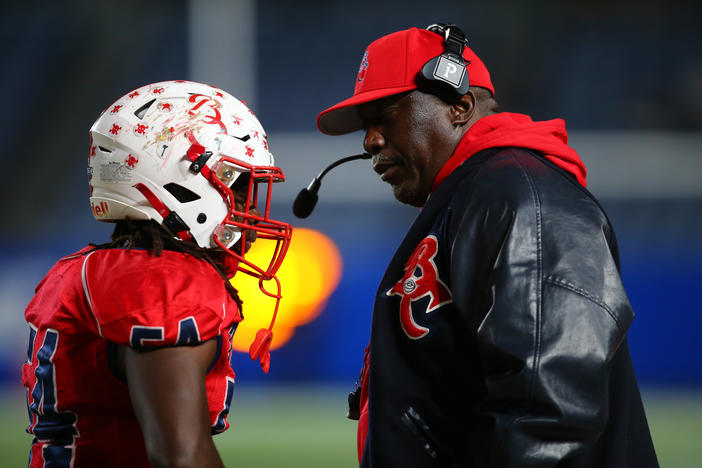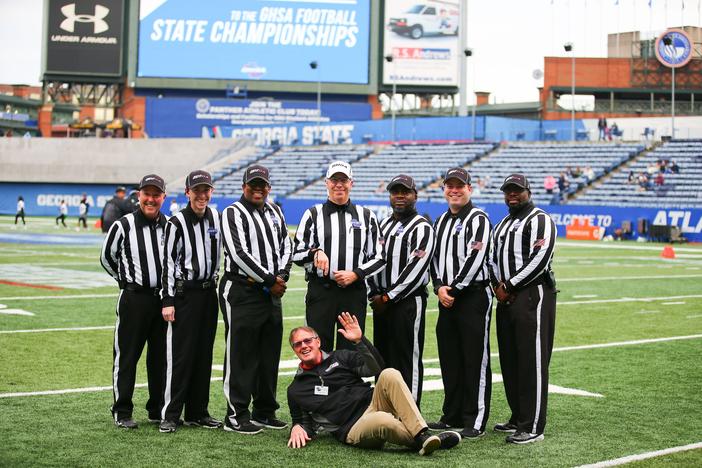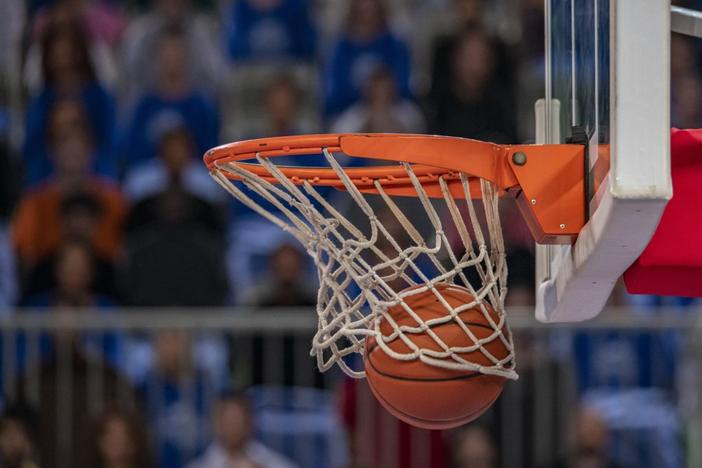
Section Branding
Header Content
The Earlier, The Better?
Primary Content

Written By: GPB Sports Intern Katie Wilson
While most high school students are lounging around, enjoying their carefree summers, some students are making some of the most stressful and crucial decisions of their lives.
High school football players are committing earlier and earlier to college football programs. National Signing Day is in February, however players have begun committing to colleges in the early months of summer. Why? What advantage does this give them? I asked high school football coaches Keith Maloof, Kevin Reach, and Kyle Hockman to find out.
All coaches agreed: one of the biggest advantages of committing early is getting the decision out of the way in order to focus on the player’s last senior season.
Some players feel pressure when making their decision, others find the constant contact from colleges and media to be extremely tiring. Taking care of their decision before their senior year seems to take a load off of players’ shoulders.
When asked why some of his players have committed before their senior year, Collins Hill Head Coach Kevin Reach said, “They’re just glad to get all the headaches out of the way.”
Another common response amongst the coaches was: if the player likes the school and gets the offer, why wait?
“In this day and age, if you go on that campus visit and you feel good with it and have something to compare it to from previous visits, then it is as good of a time as any to commit,” said McEachern Head Coach Kyle Hockman.
Disadvantages of committing early include price, university staff changes, and missing out on potential better offers in the future.
Players are only allowed unofficial, unpaid visits prior to starting their senior season. Because of this, making summer visits can get costly.
Another common scenario the coaches gave is the possibility of a head coach retiring at the university the player committed to.
“A kid that had committed early passed up a bunch of other scholarships and then a new coach came in and said, ‘You know, you’re not going to fit into our scheme now,’” said Coach Reach.
According to Norcross Head Coach Keith Maloof, it all boils down to 'the kind of kid you’re dealing with.' Level of talent is one thing to consider about a player, which affects their flexibility with waiting for better offers.
Another factor to consider about a player is their overall personality. “Some kids like the hoopla leading up to signing day with ESPN and all that stuff. Other kids just want to commit, be done with it, and have a good senior year,” said Coach Maloof.
Coach Hockman, on the other hand, said the entire process comes down to the players’ family situations and the timing of the offers.
No matter what the important factors of this decision may be, it is clear that there is a lot to take into consideration.
The overall consensus from these football coaches is that the best time for a player to commit varies for each individual. So, like all important decisions in life, there seems to be no black-and-white formula behind the decision-making timeline of the highly recruited.
Secondary Content
Bottom Content





